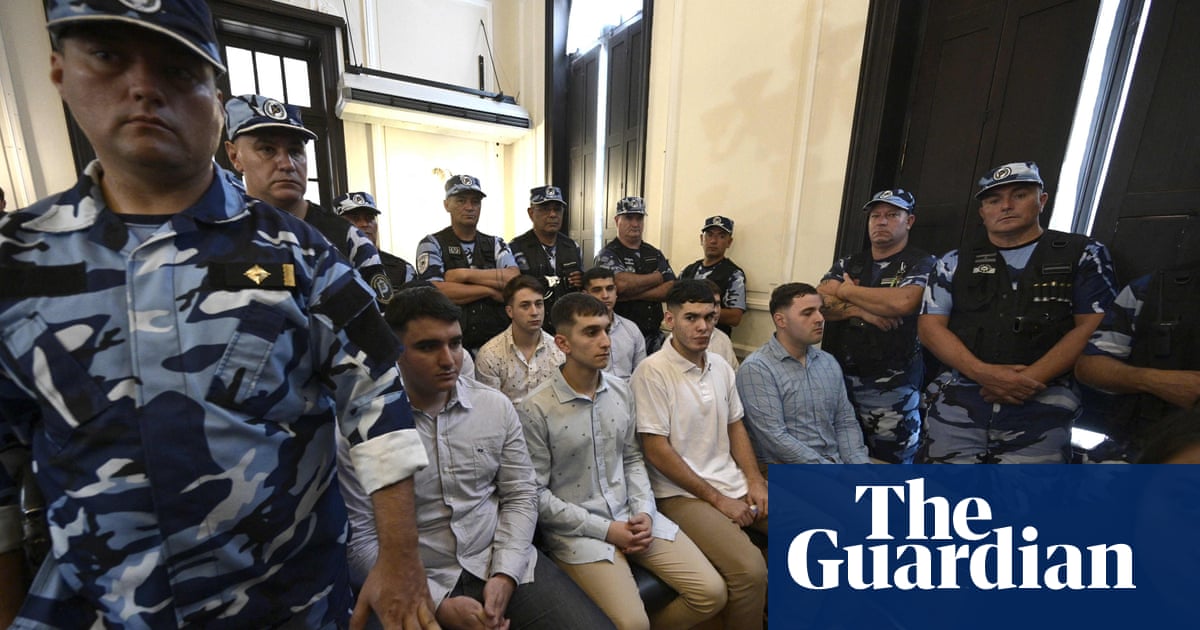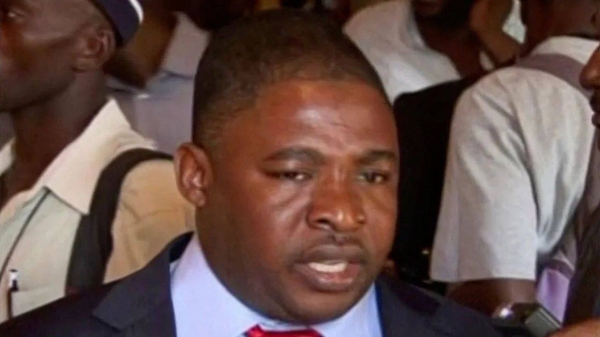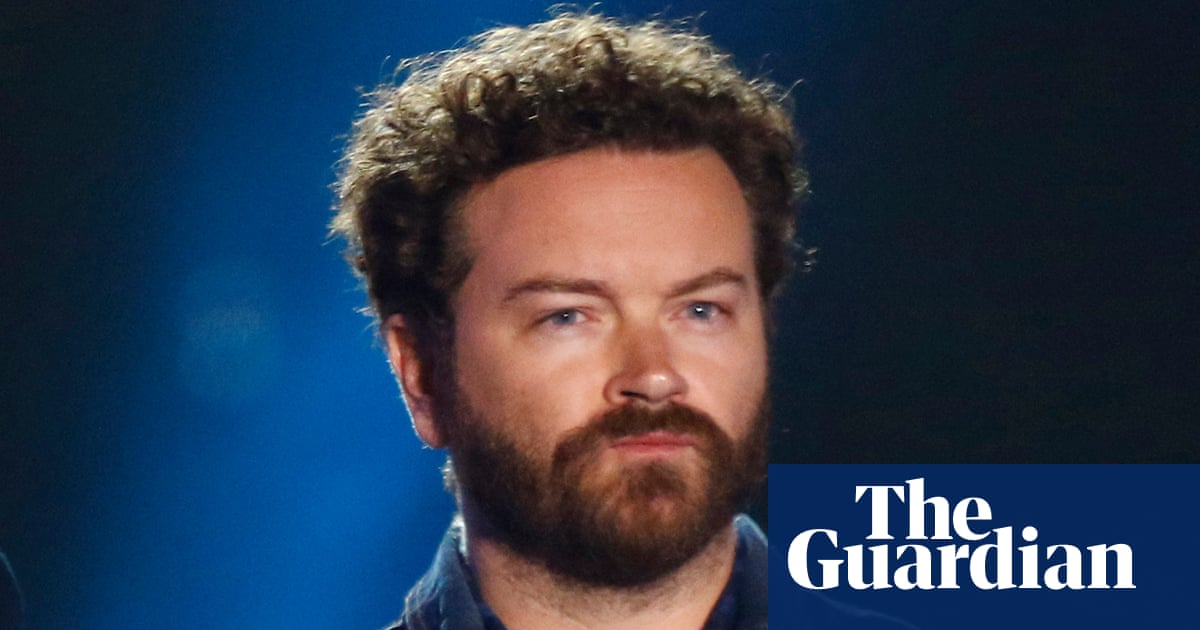
Eight amateur rugby players have been found guilty over the murder of an aspiring law student in Argentina, in a case that has outraged the public and shone a harsh light on racist attitudes in the country.
Five of the attackers were sentenced to life in prison – which in Argentina is a maximum of 35 years – for their part in the murder of Fernando Báez Sosa, 18, the only son of two Paraguayan immigrants.
Three others were given 15 years in jail by the court in the town of Dolores on Monday. Several of the assailants belonged to the same amateur rugby team; all eight are between the ages of 21 and 23.
The brutal killing in January 2020 has been among the most high-profile criminal cases in Argentina in recent years.
Báez Sosa and friends had been partying in a nightclub in the seaside city of Villa Gesell, when an altercation broke out between them and the rugby players.
Both groups were kicked out of the club, but minutes later, the rugby players swarmed Báez Sosa, kicking and beating him as he lay on the ground, the court heard. Some of them tried to keep bystanders from intervening.
One filmed the attack, which lasted some 45 seconds. Witnesses reported hearing some of them hurl racist slurs at Báez Sosa. One of the attackers was heard screaming “negro de mierda” – which means “black piece of shit” – while another vowed to “take him as a trophy”. Afterwards, a member of the group bragged about the attack in text messages and another swore the rest to secrecy.
A media circus enveloped the two-week trial in January that saw some 80 witnesses, including young people who had witnessed the violent scenes and the rugby players’ parents.
The prosecution had sought life in prison for all members of the rugby group, describing their collective actions as “an execution”, while the defense said the group should be acquitted because they had not intended to kill Báez Sosa.
“Fernando is the only victim here,” his mother, Graciela Sosa, told reporters before the verdict was rendered. “They killed him in the worst way possible, kicking him, while he was begging for them to stop.”
Máximo Thomsen, who prosecutors said delivered the fatal blows to Báez Sosa’s head, Ciro Pertossi, Enzo Comelli, Matías Benicelli and Luciano Pertossi were sentenced to life as co-authors of the homicide that was aggravated by premeditation and carried out by a group.
Blas Cinalli, Ayrton Viollaz and Lucas Pertossi were convicted as “secondary participants” in the same crime.
Although racially motivated hate was never part of the charge presented by the prosecution, family members, activists and government officials considered it to be a key factor in the attack.
“The case of Fernando Báez Sosa is a watershed moment in Argentina,” said Alejandro Mamani, a lawyer and member of Identidad Marrón, an anti-racist group.
The National Institute against Discrimination, Xenophobia and Racism of Argentina called it a “clear racist attack” because of the words screamed by the assailants.
In Argentina, “negro” is a term that is not only used to describe people of African descent but also darker-skinned or Indigenous people.
“My son was beaten for racist reasons,” wrote Fernando’s father, Silvino Báez, about a year after the crime happened. “It was hate. Maybe they felt superior because they’re blond and Fernando had dark skin.”
Fernando Burlando, a lawyer for the family, said all of the attackers should have received a life sentence, and he planned to appeal. “Weak justice at the moment of sentencing is not justice,” he said.
In many respects, Báez Sosa, who grew up in Buenos Aires, represented the “average Argentine”, said Mamani – a beloved son in a working-class family, who through academic excellence was on track to ascend the social ladder.
Mamani argued that although the role of race became a point of debate in this case, its importance was not evident to everyone, suggesting that there was still work to do.
“The big issue is not the prosecutor, or the lawyers, but the judicial system. The judicial system doesn’t consider racism to be a reality in Argentina,” he said.
“It’s very hard for us to talk about racism but at least we’re starting to ask ourselves if racism exists here.”












